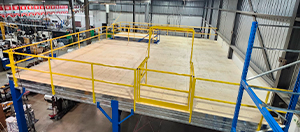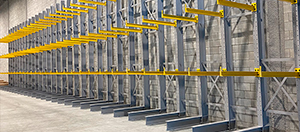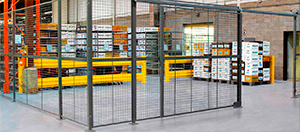Towards Sustainable Warehouses: How storage systems contribute to sustainability
The environmental emergency is a major issue of our time. All sectors, including logistics and warehousing, are being called upon to review their practices to reduce their ecological footprint.
In this article, we will explore how storage systems can become true allies of sustainability, with a focus on the use of environmentally friendly materials and waste reduction.

Storage systems: a lever for the environment
Warehouses, often seen as simple storage spaces, are actually key players in the supply chain. The choices made in terms of materials, design and organization of these spaces have a direct impact on the environment.-
Sustainable materials: building a sustainable future

Certified wood: A renewable and robust material that can be used for the construction of pallets, racks and even entire buildings.
 Recycled metals: Steel and aluminum, often used in the manufacture of racks and containers, can be recovered.
Recycled metals: Steel and aluminum, often used in the manufacture of racks and containers, can be recovered.Recycled plastics: Many plastic products, such as storage bins, can be made from recycled materials.

Bio-based materials: Bamboo, hemp and other plant raw materials can be used to create sustainable packaging and home furnishings.
-
Waste reduction: optimize and reuse
- Optimization of space: Efficient storage management reduces the need to build new warehouses and thus limits the ecological footprint.
- Material reuse: Pallets, crates and packaging can be repaired and reused multiple times, reducing waste generation.
- Selective sorting: The implementation of a waste sorting system makes it possible to recover recyclable materials and reduce the volume of waste sent to landfill.
- Eco-design of products: By working closely with suppliers, it is possible to promote the eco-design of products, by favoring lighter and more recyclable packaging.
The benefits of sustainable storage
Companies that invest in sustainable storage systems benefit from many advantages:- Cost reduction: Reducing energy consumption, optimizing inventory management and recovering waste can result in significant savings.
- Improving brand image: Consumers are increasingly aware of environmental issues. By adopting sustainable practices, companies can strengthen their brand image and build customer loyalty.
- Regulatory compliance: Many environmental regulations impose increasingly stringent requirements for waste management and energy consumption.

_699.png)
_679.png)
_239.png)





_926.png)








